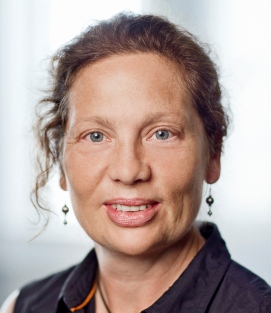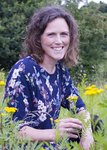A three-digit million amount strengthens biodiversity research at the Department of Biology
Two researchers at the Department of Biology at Aarhus University have received a total of DKK 119 million for two new six-year research centers, which will examine how biodiversity can be future proofed in a changeable climate and in a world with ever increasing resource needs. The Novo Nordisk Foundation has awarded the large research grants as part of their “Novo Nordisk Foundation Challenge Programme”.
The Novo Nordisk Foundation Challenge Programme was established in 2014, and since then, the foundation has awarded a generous amount of funding each year for ambitious research projects that focus on global challenges under a variety of themes. In 2020, focus has been on biodiversity in particular. Two of this year's three grants have been given to professor Trine Bilde and professor Signe Normand, both at the Department of Biology, Aarhus University.
I'm very proud that the two talented researchers at the Department of Biology have been selected to receive the large grants from the Novo Nordisk Foundation. The Department's research in the field of biodiversity is very strong and in the absolute world elite, and I see the grants from the Novo Nordisk Foundation as a great recognition of this. The funding means that in the coming years, the Department will be able to expand our contribution to solving the global challenges within biodiversity", says Head of Department Hans Brix.
The big picture for small creatures

One center is called EcoGenetics: Center for Ecological Genetics and is headed by Professor Trine Bilde at the Department of Biology, in close collaboration with Philip Francis Thomsen, Department of Biology, Aarhus University, Marjo Saastamoinen, Institute of Life Science, Helsinki University, and Greta Bocedi, School of Biological Science, University of Aberdeen.
The research center will investigate whether the observed dramatic declines in insect populations have also led to a loss of genetic diversity, and how the genetic diversity of populations is affected by the interplay between the habitat requirements of animals and the use of natural areas. The research will investigate whether lower genetic diversity threatens the biological functions of species and makes populations more vulnerable to environmental changes and outbreaks of disease.
Insects are extremely important in both natural and cultivated ecosystems. We are apparently seeing significant population declines, but we know very little about what the consequences of these will be to genetic diversity. Loss of genetic diversity can exacerbate the loss of biodiversity and the important functions of the insects, e.g. pollination and natural pest control.
It is therefore important to understand how we can maintain genetic diversity in natural populations. Our research examines the interplay between animal biology and the intensity and type of use of the areas they live in for the maintenance of healthy and diverse populations, using large-scale genomic analyzes, performance experiments, and integrative modelling” says Trine Bilde, who will receive DKK 59.1 million for her research.
Rethinking the Danish landscape

Professor Signe Normand, Department of Biology, is in charge of the second center, which will be called SustainScapes - Center for Sustainable Landscapes under Global Change and will receive DKK 60 million.
The center will help us understand how changes in land use and climate conditions have historically impacted biodiversity across Denmark. Based on the new knowledge, the project will develop tools to predict how and in which areas ecosystem restoration will contribute to recover and maintain biodiversity in the future.
The center will be established together with assistant professor Alejandro Ordonez and professor Jens-Christian Svenning from the Department of Biology and in close collaboration with professor Tommy Dalgaard and other researchers from the Department of Agroecology.
In SustainScapes, we will, among other things, examine how differences in land use during the last centuries have affected soil conditions and the diversity of microorganisms, as well as their significance for the diversity of plants and their pollinators. We will explore where – and how quickly – we can expect that biodiversity can be rebuilt across the trophic levels, as well as the role of nature-based solutions for biodiversity restoration. I am very much looking forward to the next six years and expect that the center also will initiate new and exciting collaborations across the Department of Biology, Aarhus University, and internationally", says Signe Normand, who will receive DKK 60 million for her research.
Contakt:
Professor Trine Bilde, Department of Biology, Aarhus University. Phone.: 60202702. Email:
trine.bilde@bio.au.dk
Professor Signe Normand, Department of Biology, Aarhus University. Phone.:23718009. Email: signe.normand@bio.au.dk
